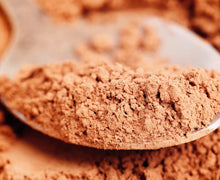
Blood pressure medication can lower a person’s blood pressure regardless of whether their numbers are high at the time. An alternative for someone with high blood pressure might be to add cocoa to their diet because researchers found it effectively lowered the blood pressure of study participants, but only when their numbers were elevated.
Scientists from the University of Surrey in England found in a series of randomized crossovers trials that cocoa flavanols, a compound found in cocoa, was able to reduce blood pressure and arterial stiffness and published their findings in a recent edition of the journal Frontiers in Nutrition.
Previous studies have found cocoa flavanols to be as effective as some blood pressure medications when it comes to lowering blood pressure and arterial stiffness. But those studies were conducted in tightly controlled clinical settings so there was some uncertainty as to how cocoa flavanols would work in an everyday, real-world setting.
This is the first study of its kind that looked into the use of cocoa flavanols outside of a laboratory setting. The fact it worked in real life combined with the fact it does not lower blood pressure when it’s not elevated makes cocoa flavanols a good candidate to be used in clinical practice.
"High blood pressure and arterial stiffness increases a person's risk of heart disease and strokes, so it is crucial that we investigate innovative ways to treat such conditions," said Christian Heiss, professor of cardiovascular medicine at the University of Surrey. "Before we even consider introducing cocoa into clinical practices, we need to test if the results previously reported in laboratory settings safely translate into real-world settings, with people going about their everyday lives."
The 11 study participants had an upper arm blood pressure monitor as well as a finger monitor to measure pulse wave velocity, a gauge arterial stiffness. The study subjects consumed on alternating days either six cocoa flavanol capsules or six placebo capsules filled with brown sugar.
Measurements of blood pressure and pulse wave velocity were taken before the consumption of the capsules and then every 30 minutes after ingestion for the first three hours. Then measurements were taken every hour for the next nine hours.
The results showed blood pressure and arterial stiffness were lowered only if the numbers were high; there was no effect if the first registered blood pressure reading in the morning was low.
The results showed there was a second wave of lowering at about the eight-hour mark which researchers attributed to how gut bacteria metabolizes cocoa flavanols and they are distributed throughout the blood stream.
"The positive impact cocoa flavanols have on our cardiovascular system, in particular, blood vessel function and blood pressure, is undeniable," Professor Heiss added. "Doctors often fear that some blood pressure tablets can decrease the blood pressure too much on some days. What we have found indicates that cocoa flavanols only decrease blood pressure if it is elevated. Working with participants' personal health technologies showed us how variable blood pressure and arterial stiffness can be from day to day and shows the role of personal health monitors in developing and implementing effective personalized care."
Click here to read more in the journal Frontiers in Nutrition.



